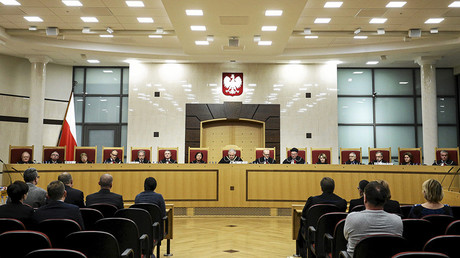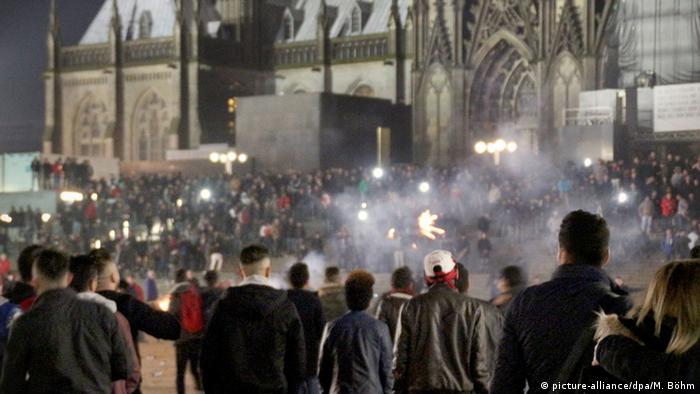[PDF version of this transcript]
Dec. 8—Lyndon LaRouche addressed associates in these terms on Tuesday, Dec 1.
There are two general subjects which are related ultimately, but which are distinctive; and I’m going to start with the first one on the subject of Filippo Brunelleschi (1377-1446). Now, what is not understood generally, is what Brunelleschi really was, and the depth of his work, and the importance of his work for all features of science; it was way beyond anything otherwise. Others in the same area of work were different; but he was very special in this respect, and on physical science, exceptional—absolutely exceptional. His breadth of understanding was great.

Architect Filippo Brunelleschi depicted looking up at his masterwork, the Duomo Santa Maria del Fiore, or cathedral dome of Florence. The sculpture was created by Luigi Pampaloni (1791-1847).
When you bring this into play, then you have to go back to Charlemagne, because you have to realize that there was a crisis which, after a great achievement by Charlemagne (742-814),—he had a short life, actually, and the span of his achievement was that—his own relatively short life. He had headquarters which travelled around the whole area of France and Germany; and this process was key to Brunelleschi, because he was responding to what Charlemagne had done before. And it was a different kind of discovery, but all of these discovery periods were divided by phases of degeneration.
For example, Nicholas of Cusa (1401-1464); what happened to him? Well, after him there was a degeneration of Christianity in that century and beyond. So, that kind of thing goes on again and again; and therefore, we cannot really try to derive from experience,—derive a principle on one principle as such, or a few principles. You can’t do it; it doesn’t work in history. History is a fairly long institution, relative to our own modest lives; and therefore we have to understand that we are actually operating between phases.
When Charlemagne was dead, the great achievements of Charlemagne disappeared. The water system,—Charlemagne created a water system; he did everything. It was a complete revolution, but when Charlemagne was dead, then the religious bodies in Europe destroyed the achievements that Charlemagne had accomplished; and it took several generations to get back to what Charlemagne had achieved. And it was never fully done itself; I mean, we had one system of water management in Germany in fact, and there was this connection in the water system—it was never finished. Even in modern times, it’s still like that.
What No One Wants to Talk About
So therefore when you’re talking about things, you cannot simply say, “This is our experience; this is what we’ve experienced,” because you’ve got to think about the ups and downs of the history of mankind. The Charlemagne case is a typical one.
I mean, here’s this guy, coming up on the edge of what we call Germany today, and France, who created a whole water management system which changed everything. And then it passed.
In the case of Brunelleschi, he was actually the most important figure in the development of physical experimental work in that period; he was. His work, which I have labored over, is great; it’s unique. And Nicholas of Cusa is a different proposition, even though the consequences of connection are there.
So therefore, the problem is that we discuss being confronted with a new urgency on the basis of the Obama case. You can’t take the Obama case per se and make that the story; because it has a precedent and it has a consequence. And the consequences are varied, and similarly other things. So, when we say, “We’ve got the latest facts; here are all the facts. This is what we said; we just discussed it all, it’s all clear.” Bunk! Absolute bunk! Because people don’t recognize what is coming up as an effect, as a result of what had preceded. But people always want to say, “Let’s be practical.” And practical people are intrinsically idiots; at least when it comes to anything of importance. And this organization is no exception to this kind of problem.
For example, I’m an old man; I’m an ancient creature. I’m not Methuselah or anything like that, but I’m old. And my knowledge of history—which is not poor—warns me that you cannot proceed from recently adopted concepts of experience; you cannot use that as a standard for saying what the present is. If you don’t know what the future was before, then you don’t know anything about the present; you have an opinion about the present, but you don’t have an efficient concept of the issue.
And Brunelleschi is typical of this kind of thing; he was actually the developer of physical science. It’s what his effect was in every area; he was absolutely unique. And when he passed on,—when his movement passed on, his business passed on,—things began to crumble. And right now, if you wanted to come to a conclusion about what the situation is here in the United States, you probably would make the same great mistake of presuming that it started just yesterday. And that’s where we are now.
And therefore we have to look at deeper things; we have to look at things that people don’t like to talk about, because they like to talk about the things they like to talk about. And what they especially like to talk about is the crap. They say, “Oh! That’s crap! Hey, come see the crap!” You try to reduce things to practical considerations; and practical considerations are the things that make idiots out of people. You cannot ignore history—living history; and most people do. They say, “Well, here are the facts. We can make a deductive conclusion based on this array of facts.” But that’s scientifically incompetent; and Brunelleschi is a good example of that principle, when you put in some other cases I’ve just mentioned as cases in history.
But what happens is, we accept certain common things that people treat as common opinion; and by sticking to those kinds of conceptions, they want to get up and say something. They want to say, “Well, this is a fact; this is a fact; this is a fact.” Nonsense; it’s not the fact. You have to go more deeply; like what we have to deal with, with China right now. We have to deal with everything in the Pacific area right now; we have to go to the history of China, as Leibniz explored it. If you haven’t studied the work of Leibniz, you don’t know anything about China. Who were the great leaders in China in that period? When Leibniz was alive? And Leibniz’s influence in what he did there and elsewhere was the foundation of what was coming out of the past before.
So therefore, the problem we have, is we think we have a big mouth, and we can still get the words out and get people to agree with it. And what they’re advising themselves is to hang themselves. Practical people are idiots. And you can say, “Well, what kind of baseball do you play?” Just another idiot? And that’s what the problem is; we do not think enough. And if you look at the condition of our intellectual level, it is crap; most of it’s crap. They don’t have any attention to the root of reality—even current reality; and you can never understand current reality unless you look more deeply into the past. And that’s the secret of finding out.
Don’t ‘Be Practical’
Just take Brunelleschi, for example; just make a list of his scientific interpretations and accomplishments. That list—very few people in the United States today have any idea of what that involved. So, that’s where our problem lies.
And now we’re coming in with the question of: “Is Obama going to be successful in destroying the human species?” That’s your question; and that’s the only question that’s competent. How are we going to get rid of Obama so that we can have a continued human civilization? And you have to go at the root of things, not trying to make compromises by negotiation; that does not work. Only idiots do it; or idiots who are people who are totally unimportant, because we don’t care what they say. Whatever they say is not important. But what happens, is we tend to make a social agreement with people. “Let’s learn to adapt to each other.” That doesn’t work either; it’s the best way of spreading syphilis.
So therefore we have to think seriously about this. Look, we’re on the edge of the extermination of the human species; don’t worry about who’s talking about what, what kind of weapons and so forth. It doesn’t make any damn difference. In less than twenty minutes, you’re dead; and your death will have been announced and reported throughout the planet. How long does it take for a full-scale thermonuclear blast against a great nation? And what will remain as a result of that blast? Possibly, absolutely nothing, except waste.
And therefore, what do we have to do? Well, the simple thing is we say, “If we get rid of Obama, if we throw him out of office, this is a new story.” And people say they’re going to negotiate with Obama? That is real stupidity. If you’re negotiating with Obama, you’re a traitor to mankind. This man must be thrown out of office. And a sudden reform in the processes of the United States and other nations—particularly the trans-Atlantic area—has to go through a complete change; a sudden and complete change. There are no practical measures that can be taken; only decisive measures.
So, if you look at this thing from what I just listed as a few cases of history which are very familiar to me,—because I used to do a lot of that. But I know that if you don’t understand the deeper part of the history of mankind, you don’t know anything; you’re just making wild guesses, whatever you say. And that’s where we have to be careful. What’s the root of the issue? And I can tell you that practically everyone in this nation is absolutely ignorant of those considerations; they have no conception whatsoever of how history is formed, of how history is generated. And people say, “Well, I had an experience yesterday.” “You had an experience yesterday? Well, why don’t you clean it up?”
So, we’ve got to turn into that direction. And right, now what’s the point? We have to have one thing; Obama must be dumped. You cannot negotiate with Obama; you have to dump him. There’s no chance of winning, there’s no chance of surviving if you want to play with that game, dump him. He’s no good; he’s a Satanic figure, just like his stepfather was. And probably his mother, too; she wasn’t doing violent things in the same way, but she was uttering influences which amounted to the same effect.
The Manhattan Music Program
And therefore, we have to say, is: what’s wrong with the mind of the present American personality, or the European personality; what’s wrong with them? Why are they so stupid? And I can tell you they’re very stupid; I’m an expert in knowing how stupid they are. Because they don’t have any sense of the origin of the process from which results emerge; it’s a lesson in history, it’s a lesson in terms of science. It’s a lesson in terms of everything. And that’s why good history is so important; because unless you can look back into history—before Zeus, shall we say—but then the question is, how was Zeus controlled? He was controlled. Who did it; how was it done?

Schiller Institute
The Schiller Institute’s New York City Community chorus, rehearsing in September 2015.
Well, you see the same thing is going on now; Wall Street is the same kind of thing. It’s a destructive force which is making mincemeat out of people. And what are they doing? They’re saying, “You’ve got to be practical.” I said, “Well, when do you want to get the burial service?”
Therefore, we are not paying attention; we’re looking at what we call the practical issues. And when you concentrate on the practical issues, you become an idiot; because you’re so associated with these so-called practical issues, that you’re completely blurred, and you have no idea of how history works—human history. It’s like people say, “Well, you’re talking about human beings.” Well, human beings are not born as such. They evolve by a process of history; and sometimes the history is bad, and sometimes it’s moderate. But that’s what you have to understand; you have to understand Charlemagne. You have to understand these kinds of things; if you don’t, you don’t know anything. And that’s where this fragmentation of experience destroys us.
And I can tell you, that most of what I get, most of the stuff is crap. Why? Because they’re trying to be practical; they’re trying to come to an agreement on what they think could work. And they assume that having said that, that all things are going to happen nicely, somehow or other.
What do we have? We have Manhattan; we also have some areas immediately around Manhattan. We are using what? We are using the Italian standpoint of musical composition. We are trying to gather together the kinds of instruments which are Classical instruments for that purpose, to build a group of people who are specialists, who will make this thing work. We are in a position to do it.
We’ve got to cut this crap out about being practical; and saying, “Well, people like this; people don’t like that.” I don’t give a damn! What I care about is the past and future of human history; nothing else means anything, everything else is garbage. And you can know it for yourself when you think back about these things; about the failed life which people find themselves trapped into.
So, let’s not get into the idea that we’re going to say, “We’ve got the big solution for Obama’s attempt to destroy this human race.” That’s not the way you go at it; you have to go at the historical root of the problem. If that’s not your starting point, your actions are not competent.
What we’re doing, is we’re solving part of the problem by what we’re doing in the musical program which we’re developing in and around Manhattan. We have a few spots here and there of people who have some quality you can turn to as talent; but most of the people of the United States have no talent. The talent has been taken out of them since Bertrand Russell. So we’ve got to get more serious about it; the issue is clear.
I don’t think our people really understand how deadly the present moment is. I mean, you have to take a measurement of what is the charge that is going to launch the war? How much? How many? What’s Obama doing? What’s the effect of his existence? You would say immediately, “Put him in prison. Put him in a prison cell, and shut him up. Let him talk to the walls; we don’t want to hear what he has to say.” And that’s where the problem lies; we are not determined to get rid of him. It’s easy; just simply do it. What he does, he blackmails people. How does he blackmail people? By death threats. How many people has he killed? How many Americans has he killed?
On the Tuesday events [Obama’s Terror Tuesdays], how many Americans have gone down? And others gone down because of Obama? And you’re sitting there and saying that Obama is the President; we have to respect him as a President? That’s where the problem comes in. And point is, you have to look more deeply at the actuality of history. You’ve got to educate people so they actually understand history; not coming out with “I got it! I got this answer!” No. You’ve got to think more calmly and more profoundly; and think of history. If you don’t know history, you don’t know anything. So anyway, that’s my concern. . . .
History Doesn’t Just Happen
How do you stop it, that’s the point. How do you stop it? How do you stop the current course of history? Because everything, every problem of mankind is the failure to stop the bad history which is in the making. And that’s where most people are screwed up. They say, what’s a practical solution to this problem? And if you’re not influencing thefuture thinking of the population, you ain’t doing nothing. You’re not doing anything important. The idea that,—you know,—history will tell you what the future is,—history does not tell you what the future is! Mankind’s development determines what the future is.
And Brunelleschi is a good example of this. His work is an excellent model, because he was a leading figure in a crucial period of the Renaissance. His work was absolutely magnificent. And that’s where you have to generate the future, not react against it. Generate the future.

Brunelleschi depicted holding a model of the dome of the Florence cathedral, by Italian painter Giuseppe Bezzouli (1784-1855).
And what we’re up against is that. Now what we’re doing is, how are we working? We’re working basically on what? We’re working on music; well, what’re we doing about music? Well, we are not doing what most people think you should do in music. That you can’t make a deductive process. A deductive notion of mankind’s future is for idiots. You have to create the future, and you don’t derive the future from the past. You free mankind of the past. You don’t learn from the past, you learn to get out of it.
And that’s exactly what is not happening since the beginning of the Twentieth Century, with Bertrand Russell’s operation in particular, what’s the direction in which mankind is going? Down! Down!
These are the problems, and the fact is that we’re not intelligent enough, and we haven’t learned from history. I spent most of my activity in learning history, ancient history, all kinds of history. And you’re looking for the change, which is history. And it’s not something that happened to you; it’s something that you pushed, and made happen.
And if you don’t have that sense of pushing to make something happen, which must be made to be caused to happen, then you’re a failure, and your opinions are a failure. You don’t try to deduce facts. You smear the facts, you say, “facts, facts!” You want to talk to me about “facts”!? You want to die in your cemetery? You want to die in your tomb, is that what you want? Is that your future? You’re waiting till you can complete your death? When your nuisance value will be over.
The question is, how do you create the necessary future? And that is the nature of mankind’s achievements. But you go into the schoolroom: “Well, history has taught us. . .” What do you mean history has “taught us”? Did you teach that? Did you teach the future? Well, who teaches the future? Very few people, very rare people. And when a crisis occurred in the course of history, what happened? Then history as a process as a whole, collapsed!
And that’s my nightmare concern.
I’ve been going a good deal around the world in the course of my life, and that’s what I’ve learned: You don’t learn from experience. You are forewarned of the stupidity of your inclination to think that you know what the future is, in terms of what’s already happening. When you say, “a trend direction” is the future, then you’re in trouble. And that’s what happens to people. You have to be the adventurer, to go where others have never gone before. And that’s what this organization has to be able to do, otherwise we cannot win this one.
I hate practical people, not as a personal business, but I hate the fact that they exist. The disaster that’s going to come as a result of that.
And this Brunelleschi is probably, for the present time,—Brunelleschi’s achievements in science in many different ways, are a good model to understand how the future is created. That’s what he was: He created the future. He created the very idea of music; people didn’t know what music was until he came along. And he has this nice little place there [the Pazzi Chapel], where you go into this place, and here it is, the thing is alive! Here’s this small instrument there, and it’s alive, it’s music. It’s a piece of genius. And that’s what you’re looking for.
It’s Made to Happen
Anyway, so that’s the picture. And I say let’s be conscious about this thing. Let’s not be practical. Let’s not say, “so and so said such and such.” Forget it! Most people who I know of who are authorities are incompetents. So what do you want to listen to them for?
If you do not have the insight to see the future, you’re not competent. And that should be the purpose of education. But the practical people will kill you. Don’t listen to practical people. Anyway, that’s our issue, that’s what the issue is,—that we really have to have an understanding of how we shape the future. How do we change the mood of the people in the United States, from the stupidity which is their characteristic trait right now?
They’re out there; they’ve taken their position, and they’re deciding to rely upon orders by Obama. They’re saying: “Obama is making the policy, this is Obama’s policy.” What do you want to do with people who have that idea? Put ’em into prison. And tell ’em never to talk, they might spread a disease.
So you see the future, as the future, and the future is what’s wrong with the present. So when someone says he’s an expert, “Uh-oh, one of those guys, huh? We never were able to clean up their confusion.”
And this is the nightmare that I have, always this stuff: Somebody comes along, “Well experience shows us. . .”, “He has an opinion. . .”, “You should listen to his opinion. . .”,—my God, it drives me wild.
So our job is to do this. I think we’re potentially doing well, but I think we get sucked into trying to propitiate idiots. We try to say, “well, they will agree to this, they will agree with that. . .” Nah! Forget it, it’s all crap!
And what we’re doing with the music thing is what is the key. Now, we cannot do much with music on a continental basis. The musical capabilities of the population of the United States are very, very, very, very, very poor. If they ever had a musical insight, they lost it somewhere along the line, dropped in a garbage pail or something like that.
But what we’re doing, is we go back to the Italian,—for example we’re using the Italian model now. It has several attributes which are extremely important, including that we have a bunch of musicians who are more or less still running around in the Manhattan area, Brooklyn, and so forth. And if we pull those instrumentalists into the kind of thing that these instruments were designed to do, according to the Italian standpoint,—Ah! Now you’ve got something!
Because what you’re doing is, you are attacking the failure. Therefore you say, how do we tune this? So the point is, the key thing is, how do you tune the mind of the human individual? How do you tune the process of their development, of their ability to make these creative, recreative processes? So that’s what we have.
So you have this one area,—there’s something in Manhattan,—pieces in Manhattan, only pieces. We’re going into this larger part of the area, where we have these instruments which are being re-tuned, to fit the Italian standard.
And this is a language which is otherwise not spoken. So you want to get rid of the other kind of music, and that’s what the tuning process means. And what we do,—we can do it. I would say now,—I would say,—well, in two years we could do it, because there are a lot of instruments that have to be fixed; people have to do the things properly; we have to check the whole process. That has to be gone through.
But we already have access to this. We have some work on music, vocal music in particular, and instrumental as well. We have that access open to us, so we will make the best we can out of it. And we will try to discover what we lost, or what we lost which was the future. That’s the way we have to approach this thing.


 Taking the PiS? Poland’s EU voting rights in peril amid media, judiciary crackdown
Taking the PiS? Poland’s EU voting rights in peril amid media, judiciary crackdown



